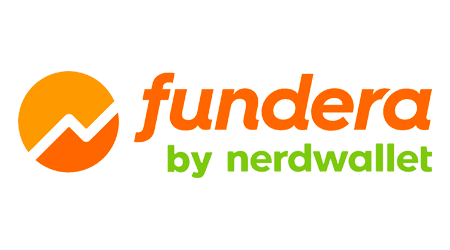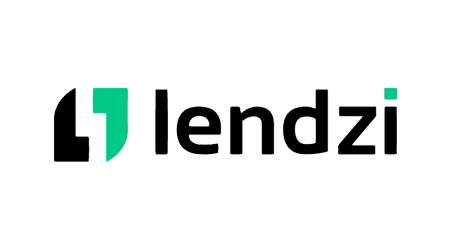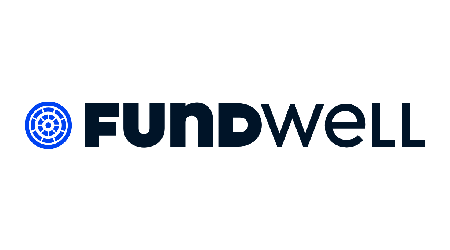It’s common to see large loans get low interest rates — you may see rates as low as 3% to 7% if you have stellar credit or rates between 6% to 10%, depending on the type of financing.
However, low rates tend to come from big banks. Most Small Business Administration (SBA) loan programs have limits of up to $5 million and may have higher rates, often capped at 9.5% to 11%.
Before you sign the dotted line, compare paths in getting a $10 million business loan.
Where can I get a $10 million business loan?
Your best bet to get a $10 million business loan is with a large bank or lender that specializes in high-dollar financing for businesses. And it’s also one of the better ways to get a low interest rate on these large loans.
You may qualify for $10 million through the SBA 504 program — but this financing is limited to commercial real estate, not working capital.
If you don’t have the revenue to support such a large loan and a previous banking relationship with the lender you’re interested in, it will be difficult to find a $10 million business loan. There are nonbank lenders and marketplaces such as Lendio, Nav and Biz2Credit that offer business loans in the millions, but amounts are often capped at $5,000,000 to $6,000,000.
Can I get a $10 million loan for my small business?
If you’re a small business, you may not qualify for a $10 million loan. Strong revenue is required due to the large payments on these loans. Compare other small business loan options.
5 types of $10 million business loans
Several financing options are available for $10 million loans — though not all are right for every business.
1. Business term loan
A business term loan comes in one lump sum that is repaid over a period of 10 to 25 years — plus interest and fees. Term loans of this size might be available through large national or international banks. Some online lenders specialize in high-dollar financing, but it’s rare.
You generally need a record of repaid loans, high monthly revenue and collateral to qualify for a $10 million term loan. It also helps to have an established banking relationship with the lender.
Consider using a term loan if …
- You need to fund a one-time expense
- You and your business partners have excellent personal credit
- You have a good relationship with your lender
Consider other options if …
- It’s hard to predict your business’s costs
- You have weak or poor credit
- Your business lacks sufficient collateral
2. Business line of credit
Business lines of credit are best for ongoing projects and frequent expenses. They have lower rates than a business credit card, and the $10 million credit limit allows for a wide range of spending. Like term loans, lines of credit are typically available from banks and some online lenders. Expect to meet similar eligibility requirements as well.
Consider using a line of credit if …
- You have costs that are unpredictable
- You and your business partners have excellent personal credit
Consider other options if …
- You only need funds for a one-time expense
- Your business lacks sufficient collateral
3. SBA 504 loan
The SBA 504 program is meant to buy property, equipment or real estate. Generally, you need to put up a 10% to 20% down payment and meet the SBA’s loan requirements to qualify for this loan. And while most programs are capped at $5 million, you might be able to find an SBA 504 loan of up to $10 million, depending on the lender you work with.
Consider using an SBA 504 loan if …
- You need funds to buy property, real estate or equipment
- You have the funds to cover a large down payment
- You have the time to invest in an SBA loan application
Consider other options if …
- You need funding relatively fast
- You need a loan for working capital
- You can’t make a 10% down payment
4. Invoice factoring
Invoice factoring uses your business’s unpaid invoices from other companies or government agencies as collateral for a loan. Your business sells its unpaid invoices at a discount to a third party. In exchange, your business receives 80% to 95% of the unpaid amount up front and the remaining amount after your clients have paid.
Invoice factoring is typically fast, and your business may be able to qualify without high revenue or excellent credit. However, it’s also expensive compared to more traditional options. Compare the top factoring companies here.
Consider invoice factoring if …
- Your business has at least $10.5 million in unpaid invoices
- You need money quickly
- You’ve struggled to qualify for other types of financing
Consider other options if …
- You have time to spend on lengthier applications
- Your business can qualify for a term loan or line of credit
5. Merchant cash advance
Retailers can get an advance on their future sales through this high-cost alternative to traditional business loans. Generally, merchant cash advances (MCAs) have less stringent eligibility requirements and a much faster turnaround — think a few days rather than weeks.
Instead of interest, MCAs come with a flat fee that your business repays with a percentage of its sales. However, these can be significantly more expensive than traditional financing — and very few options are available for businesses that need to borrow $10 million.
Consider using a merchant cash advance if …
- You own a retail business
- You’ve struggled to get financing elsewhere
- You don’t have time to spend on a lengthy application
Consider other options if …
- You can qualify for a term loan or SBA loan
- Your business isn’t in a rush for funding
How much a $10 million business loan costs
It depends on your business and the type of financing you choose. Loans of this size usually come with low rates and long terms — APRs between 6% and 10% and terms ranging from 10 to 25 years.
A $10 million business loan with a 25-year term and a 6% APR has a monthly repayment of $64,430.14. Over the course of the loan term, that loan would cost around $9,329,042.04 in interest.
Even a low APR on these large business loans creates a high monthly payment, which is why strong revenue is required.
See the potential costs of a $10 million loan
Simply enter in an amount, loan term and interest rate to see how much a $10 million business loan may cost you.
Monthly repayments calculator
Calculate how much you could expect to pay each month|
Your loan
|
|---|
| Loan amount |
|
$
|
| Loan terms (in years) |
|
|
| Interest rate |
|
%
|
Fill out the form and click on “Calculate” to see your estimated monthly payment.
or
Compare business loans nowBased on your loan terms
| Principal | $ |
|---|---|
| Interest | $ |
| Total Cost | $ |
How can I qualify for a $10 million business loan?
Eligibility requirements vary by lender and the type of financing you’re interested in. But typically, you and your business will need to meet these requirements:
- Established banking relationship with the lender
- Established business with years of experience
- Strong business revenue to afford repayments
- Strong personal credit
- Collateral to secure the loan
Can I get a $10 million business loan to start a business?
It’s not likely. Most lenders that offer funding of this size require your business to be around for at least a few years and have a proven track record of high revenue. To compare lending options for new businesses, see our list of the best startup business loans.
What about a $10 million business loan without collateral?
It might be possible in some cases, but most business loans of this size require some kind of collateral — even if it doesn’t fully back the loan. A merchant cash advance technically doesn’t require any physical collateral, though you’re pledging a percentage of your future sales.
Compare high amount business loan lenders
Narrow down top business loan providers by minimum amount, maximum amount and more to find the best for your budget and financial goals. Select Compare for up to four products to see their benefits side by side.
Compare other products
We currently don't have that product, but here are others to consider:
How we picked theseWhat is the Finder Score?
The Finder Score crunches 12+ types of business loans across 35+ lenders. It takes into account the product's interest rate, fees and features, as well as the type of loan eg investor, variable, fixed rate - this gives you a simple score out of 10.
To provide a Score, we compare like-for-like loans. So if you're comparing the best business loans for startups loans, you can see how each business loan stacks up against other business loans with the same borrower type, rate type and repayment type.
Other business loan amounts:
Ask a question
More guides on Finder
-
8 Best Commercial Truck Loans (2026)
Best financing options for trucking companies to cover licensing, new trucks, insurance, vehicle maintenance and more.
-
Can You Get a Business Loan With a Cosigner? (2026)
Think you need a cosigner for your business loan? Learn when they help — and when they don’t.
-
Fundera Review: Fast Funding Up to $5M for Small Businesses (2026)
Get connected with short-term funding, SBA loans, lines of credit and more.
-
Best Business Loans with No Personal Guarantee (2026)
Business loans that don’t require a personal guarantee, including options for comparing multiple lenders and specific loan types.
-
$50K No-Doc Business Loans: Fast Funding, Apply Today (2026)
Compare $50,000 no-doc business loans for an expedited lending process.
-
How to Get a $400,000 Business Loan in 2026
Compare different lenders to secure a $400,000 business loan with favorable terms.
-
How to Get a $3 Million Business Loan in 2026
You’ll have an easier time qualifying if you have strong credit and high revenue.
-
How to Get a $5 Million Business Loan in 2026
Find financing to grow your business — or even buy another.
-
Compare $10,000 Business Loans in 2026
Stay away from big banks for a loan of this size.





